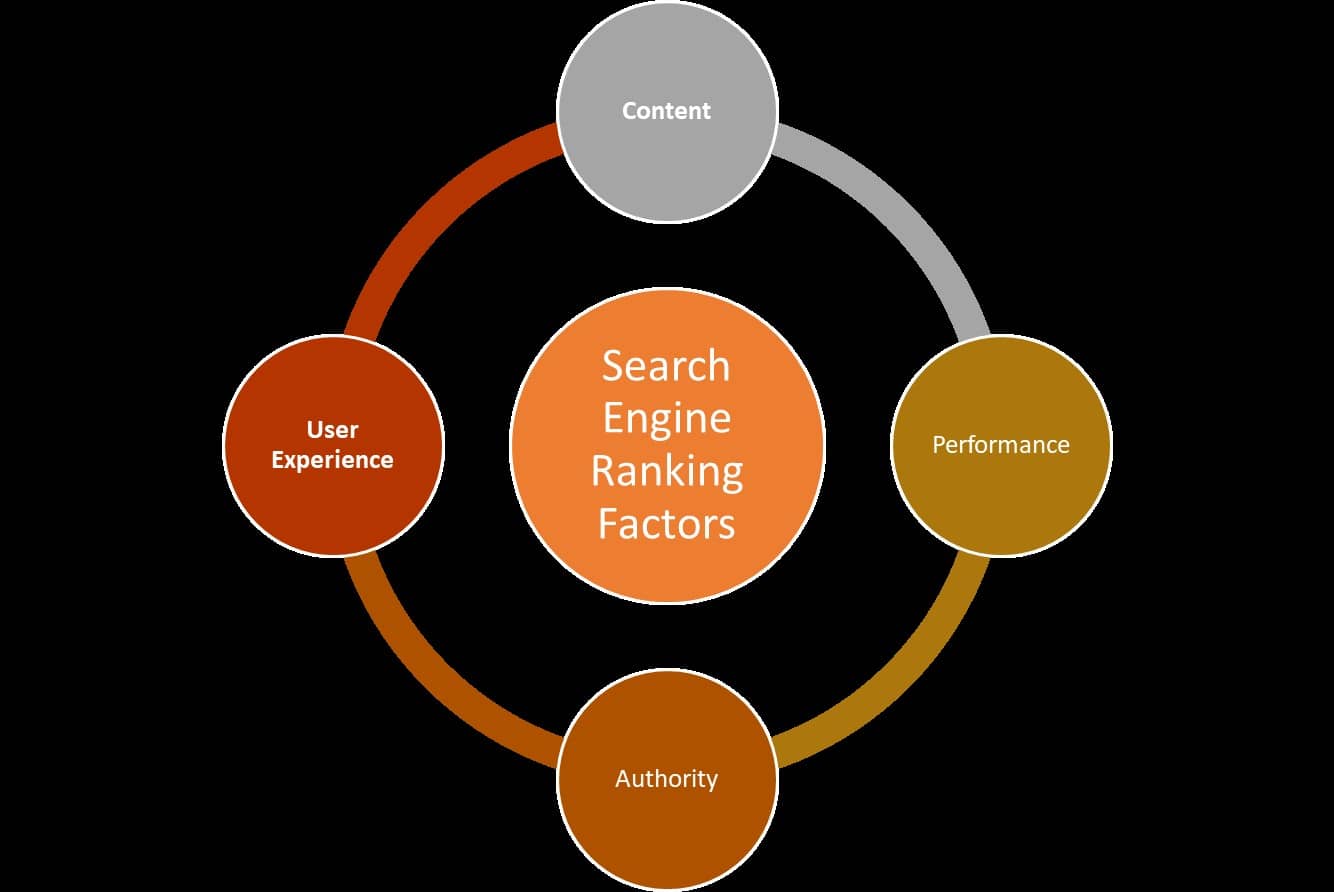Last Updated on August 28, 2024 by Admin
Are you going to have a new site? Congratulations! You have just started the journey that will help you build a solid online presence.
A website must exist, have an appealing interface to customers, and allow visitors to shop online. You must use SEO strategies to help your site rank better in SERPs to achieve this goal. In this blog post, we’ll walk you through 8 simple steps about SEO for a new website, considered an efficient method.
From registering the right domain name to optimizing your content and fixing your website issues, we’ll tackle everything you may need to do to outsmart your competitors and drive more organic traffic to your site. Let’s discuss these SEO aspects and how they will positively impact your website’s SEO rankings in the upcoming year.
What is SEO? Why Does a New Website Need it?
Search Engine Optimization (SEO) involves elevating your website’s position in the SERPs. Applying successful DIY SEO tactics will boost your presence, attract more organic traffic to your site, and even generate leads and sales.
Appropriate optimization for a new website is vital because it helps build your online visibility and brings customers to your site. Without the right optimization, your site might struggle to exist in a large reservoir of content on the Internet, so people will have problems finding your products or services.
What are search engines looking for?
The main goal of Google and search engines of this kind is to deliver the most appropriate, high-quality content that will certainly provide their users with answers to their questions. To find which site deserve to rank higher in SERPs like Google, Bing, etc, search engines consider several key factors:

- Content: Web search engines consider your website’s content’s usability, quality, and uniqueness for the specified keywords. They sort out sites that provide useful information and produce perfect solutions to users’ primary questions.
- Performance: On-page speed and mobile-friendly search engines pay much attention to this. Search engines prefer sites where users don’t have to wait too long to load and offer the same smooth experience on all devices.
- Authority: Search engines evaluate your website’s authority based on factors such as the sources of backlinks from trusted websites and domain age. Websites with better domains get more weight in the Search Engine Result Pages (SERPs).
- User Experience: A good user experience is stronger if visitors spend more time on the site and have lower bounce rates, meaning they will find value in the content on your site. Search engines apply these signals as one of the criteria for calculating rankings.
8 Effective Tips to Do SEO for a New Website
Check out these eight tried and tested effect tips to do SEO for a new website:
1. Select a Relevant Domain Name
Naming your website’s domain is among the most important factors that contribute to the SEO success of a new website. A domain name that is easily recognizable, concise, direct, and related to your brand can help users navigate and recall your site effortlessly. When choosing a domain name, consider the following tips:
- Keep it short and simple: To make it easier for people to spell and memorize your domain name, choose a name that is easy to spell and remember, avoiding things like hyphens, numbers, or overly complex words.
- Use keywords strategically: It is ideal to have your main target keyword in the domain name. However, do not try to achieve keyword density at all costs; instead, make sure that your content is readable and memorable.
- Opt for a reputable domain extension: Avoid using less-known extensions like .info, .biz, or .co. These TLDs are much safer to use and easier for users to remember.
2. Develop a Clear and Logical Site Structure
Website navigation is the bedrock of any site, and it should be well-planned for both users and robots. It enables viewers to move through the site easily and establishes a visual link between your pages and the search engine crawlers. To create an effective site structure:
- Use a hierarchical structure: Start with your home page and develop a class logic of headers and subcategories.
- Create a clear navigation menu: The most salient point is to have your navigation menu easily found and used. Link to your homepage and most frequently used page and category.
- Use descriptive URLs: Generate the URLs corresponding to the pages containing the website’s actual content. Use hyphens for word separation, and make sure URLs are short enough.
3. Prioritize Mobile Responsiveness
Considering that most internet users surf websites from their mobile phones, an adaptable site to mobile would be a success factor in SEO. Google gives more visibility to mobile-friendly websites in its search results; therefore, having a responsive design and smooth user experience on all devices is a must.
To optimize your website for mobile:
- Employ a responsive layout that will automatically adapt to various screen sizes.
- Make sure your text and content are easy to read on small screens.
- Reduce image and video sizes for quicker loading times on mobile devices.
- Check that the buttons and links are touchable on the screens.
4. Analyze Your Competitors’ SEO Strategies
A comparison of your competitors’ SEO strategies can serve as a valuable tool to learn from their achievements and find room for improvement.
To analyze your competitors:
- Enter your keywords and identify the sites with the highest rankings for every search term to get to know the top competitors.
- Look at their content strategy, including the kinds of content they write, the topics they cover, and which keywords they address.
- Check your backlink portfolio, and make sure there are no backlinks from the same sources.
- You can check the areas where the competitors have already identified their content or keyword coverage to see if you can get any.
5. Discover High-Potential Keywords for Your Content
Keyword research is what lies at the heart of any successful SEO plan. The process in which you need to figure out keywords and phrases that your potential readers are looking for is to make content that not only satisfies the needs of your audience but also has a good chance of ranking in SERPs. To conduct keyword research:
- Use keyword research tools: Use tools like Google Keyword Planner, Semrush, or Ahrefs to research keywords and uncover the search volume and level of competition.
- Analyze search intent: A clear grasp of each keyword’s goal (informational, navigational, transactional, or commercial) can direct you to create and format the content to meet its purpose.
- Target long-tail keywords: Longer and more specific keywords are key in targeting areas with less competition but still relevant, as users can pick them up after specific details.
6. Create High-Quality, SEO-Optimized Content
When you plan to launch an SEO campaign, the first thing to consider is creating content that incorporates the target keywords. Make sure that the market you are targeting finds the content helpful and valuable and that those keywords are used naturally in that content for the best results.
To optimize your content for SEO:
- Including the page title, headings, meta description, and content in the keyword is necessary.
- Structure your site’s content with headings (H1, H2, H3) that will help users and search engines. The audience will be able to determine the priority of information.
- Link the pages on your site related to the page you’re working on to demonstrate your site’s structure to search engines and distribute link value throughout the pages.
- Include links to reliable external sources in your article to benefit readers and confirm the credibility of the content.
7. Promote Your Website Through Multiple Channels
Making great content is one side of the medal. If you want your new website to be visited, you must make it visible to people to achieve this. This should be done through different channels.
Effective promotion strategies include:
- Social media marketing: Share your content on social media, such as Facebook, Twitter, and LinkedIn (influencer LinkedIn marketing). You can reach millions of people and interact with your followers.
- Email marketing: Create an email list and send your subscribers newsletters containing fresh content. This will keep them engaged and bring them back to your website.
- Guest blogging: Create authoritative and informative posts compatible with reputable sites in your niche. Then, include a link back to your site in the author bio to drive referrals and establish backlinks.
- Influencer outreach: Find niche influencers and focus on them by contacting them about a possible partnership, promotional content, and backlinks.
8. Regularly Monitor and Address Technical SEO Issues
Technical SEO issues on your website must be regularly monitored to avoid dropping down in search engine rankings and, at the same time, provide a good user experience.
Identify and fix problems such as:
- Broken links: Routinely consider broken internal and external links and either fix, update, or delete them as necessary to improve user experience and site crawlability.
- Duplicate content: Point out and fix duplicate content with canonical tags or 301 redirects to ensure that the search engines are not in doubt and the site is not penalized.
- Page speed: Speeding up your website’s load process by compressing images, minifying code, and caching browsers will help create a quicker user experience and improve your website’s search engine ranking.
- Mobile responsiveness: Make sure your site is responsive and offers a smooth experience, as mobile is Google’s first indexing point.
Conclusion
Using this SEO for new website tactics will enable it to be successful. To make your website stand out, use the tips above to rank above your competitors and direct organic traffic to your website. At AlgoSaga Internet marketing agency, we recognize the power of SEO and are committed to seeing new websites improve their destinies online. Begin with these methods today, and you will see your website’s position in the search engines improve.
